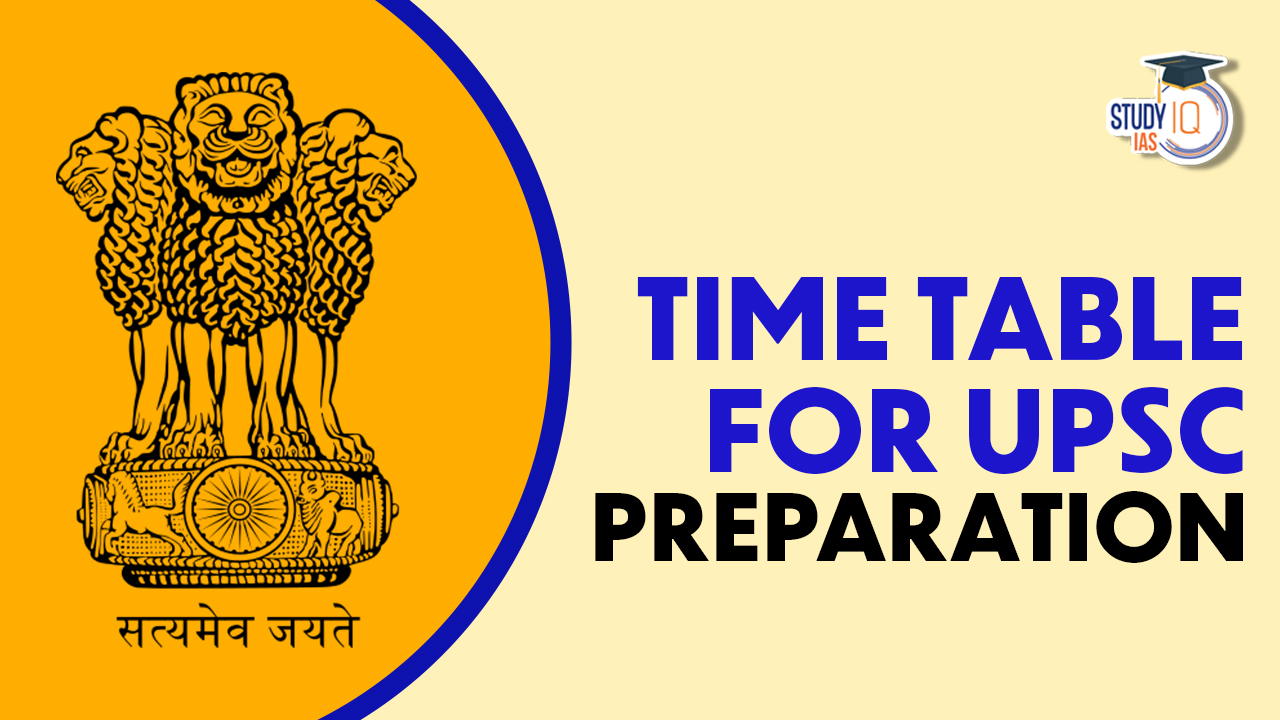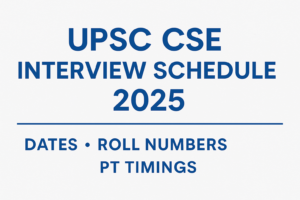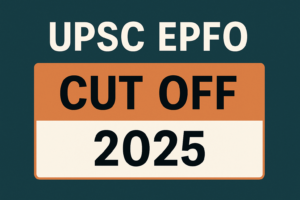Table of Contents
Time Table for UPSC Preparation
Time Table for UPSC Preparation: One of the toughest exams in the nation is the UPSC Civil Service Exam. A study schedule for the UPSC is essential if you want to pass the IAS exam. Some candidates claim to spend 15 to 16 hours per day studying for the UPSC exam. Some folks only need 6-7 hours of study per day to pass the exam. In this case, using a UPSC preparation schedule is beneficial if one plans to apply for Civil Services.
Daily Time Table for UPSC Preparation
The main element required for success in the IAS Exam is time management and having the appropriate timetable for UPSC preparation. The UPSC Exam is divided into three parts: the IAS Interview, the UPSC Main Exam, and the UPSC Prelims. Despite being integrated into all three stages, the preparatory plan takes a totally distinct approach. It takes a full year of consistent, productive effort to prepare for the UPSC Exam. An applicant should be familiar with the UPSC Syllabus before creating a timetable for their UPSC preparation.
This facilitates the division of topics and time allocation. The UPSC preparation schedule should be created after taking the educational level, strong and weak subject areas, and individual interests into account.
Time Table for UPSC Preparation 2025
When considering everyone’s daily activities, the schedule suggested in the UPSC Study itinerary below is the best. Things can be changed to fit your preferences and decisions. Candidates who are preparing for the UPSC Exam 2025 can check the table below to understand how the timetable is being made and improvise it as per their situation.
| Time-table For UPSC Preparation 2025 | |
| Prescribed Time | Activities to be Done |
| 05.30 A.M. | Wake Up |
| 05.30 A.M. to 06.30 A.M. | Exercise, Yoga, Walking, Running, etc. |
| 07.00 A.M. to 09.00 A.M. | Study Slot 1 (2 Hours) |
| 09.00 A.M. to 10.00 A.M | Breakfast |
| 10.00 A.M to 01.00 P.M. | Study Slot 2 (3 Hours) |
| 01.00 P.M. to 02.00 P.M. | Break for Lunch |
| 02.00 P.M. to 05.00 P.M. | Study Slot 3 (3 Hours) |
| 05.00 P.M. to 05.30 P.M. | Tea Break |
| 05.30 P.M. to 06.00 P.M. | Leisure Time |
| 06.00 P.M. to 09.00 P.M. | Study Slot 4 (3 Hours) |
| 09.00 P.M. to 10.00 P.M. | Dinner Time |
| 10.00 P.M. | Bedtime |
Time Table for UPSC Preparation 2025 for Weekend
In order to recruit applicants for higher-level civil service positions within the Indian government, the Union Public Service Commission holds it. The Indian Administrative Service (IAS), Indian Foreign Service (IFS), and Indian Police Service (IPS) make up this group.
Working professionals who are aspiring to the UPSC should have a separate weekend preparation plan. They will be able to compete with other hopefuls thanks to this plan’s comprehensive coverage of the curriculum. On weekends, aspirants might adhere to the following table:
| Time Table for UPSC Preparation 2025 for Weekend | |
| Prescribed Time | Schedule for Weekend |
| 5:00- 6:00 AM | Exercise and get ready |
| 6:00-9:00 AM | Slot 1 (Study Current Affairs) |
| 9:00-9:30 AM | Breakfast |
| 9:30-12:30 PM | Slot 2 ( Study Optional Subjects) |
| 12:30-2:00 PM | Lunch and Rest |
| 2:00-3:00 PM | Slot 3 (Study CSAT) |
| 3: 00- 6:00 PM | Slot 4 (Study Static Subject) |
| 6:00 -7:00 PM | Tea Break |
| 7:00-9:00 PM | Slot 5 (Solve MCQs and Practice Answer Writing) |
| 9:00 PM | Dinner |
1 Year Study Time Table For UPSC Preparation
- An applicant needs to be informed of all exam information and crucial dates. They can pass the IAS exam in a year if they use an IAS planner to effectively schedule their study time.
- Make an effort to develop a detailed schedule that includes everything on the curriculum and leaves time for methodical review.
- If a candidate plans and follows a productive study schedule, they will be able to pass the exam on the first try.
- The importance of the questions and the time allocated must be taken into consideration when planning every last aspect. One must carefully analyse the syllabus when creating an efficient study strategy for IAS preparation.
| 1 Year Study Time Table For UPSC Exam | |
| Prescribed Time | Activity to be done |
| Mid of June |
|
| July to December |
|
| January and February |
|
| March and April |
|
| May |
|
Subject Wise Timetable for UPSC 2025
Here is the Time Table for UPSC 2025 to make the process easier for everyone applying. With only nine months left, a strong UPSC preparation strategy is essential. Organise the entire preparatory process into three stages, beginning in 2023. Check the Subject Wise Timetable for UPSC 2025 as discussed below:
First Phase: Build Foundation
For the UPSC Exam, a solid foundation of ideas and subjects is required. One should completely concentrate on NCERT Books for UPSC along with the normal UPSC Books throughout the first phase, which should last for three months or 120 days (August-October). Weekly tests should be taken to gauge one’s degree of readiness. Current Affairs should be regularly referenced and kept up to date.
Second Phase: Consolidation of GS Topics and Complete Optional Paper
One should completely concentrate on the Mains Syllabus and go over the topics that were left out of the Prelims Syllabus during the second phase, which should ideally last from November to January. Following this, both Optional Subjects papers should be completely finished. In order to better comprehend the Exam Pattern and become familiar with the UPSC Answer Writing, it is advised that one attempt mock exams or PYQs over the weekends. This is also the time to thoroughly study the CSAT syllabus and practise for the CSAT as well.
Third Phase: Join Test Series
Since the second phase’s end covers the majority of the syllabus. Just concentrate solely on the test series and take as many as you can from February to May, which is the beginning of the third phase. Discuss the Economic Survey and Budget in great detail because there will be direct questions based on these.
Fourth Phase: Focus Entirely on Prelims
The third phase and the fourth phase are combined. Just concentrate totally on the Prelims from mid-April until a day or two before the exam and go over everything essential. Never forget that the Preliminaries are the most challenging portion of the entire exam process. Both GS 1 and CSAT should receive consideration.


 UPSC EPFO Result 2025 Out: EO/AO and APF...
UPSC EPFO Result 2025 Out: EO/AO and APF...
 UPSC CSE Interview Schedule 2025: Dates,...
UPSC CSE Interview Schedule 2025: Dates,...
 UPSC EPFO Cut Off 2025 (Expected): Categ...
UPSC EPFO Cut Off 2025 (Expected): Categ...

























